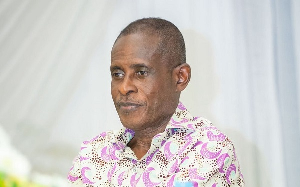– Akua Bonsu
Although it is possible for 99 people to be wrong and for one person to be right on an issue, it is a rare occurrence. With the overwhelming number of people and organizations voicing their objection to the 45 new constituencies as against only the NDC and the Electoral Commission (EC), there is little doubt that to preserve peace during the December elections, the NDC and EC are wrong to insist on jamming the new constituencies into Ghanaians’ throat.
Aside from the unquestioned mandate that EC possesses to create new constituencies up to 12 months after the release of new census data, the biggest argument thus far put forth by the two bedmates (NDC and EC) is that in 2004 the Kufuor administration also created 30 constituencies. But the numbers are not in favor of the bedmates. Furthermore, critical timelines do not favor them.
Between 1990 and 2000 Ghana’s population grew from 14.3 million to 18.9 million or at a rate of 32.1%. following the release of those census numbers in March of 2003, the EC factored in infrastructural and communication challenges and independently determined to increase the number of constituencies from 200 to 230. It is noteworthy that only after the EC had come up with its own number of 30 new constituencies did the Kufuor administration create the new districts to accommodate them. The EC confirms this and agree to the absence of interference from the Kufuor administration. Further, the EC followed due process, as required by law, by allowing 12 months of public input before instituting the new constituencies.
The 2010 population census was carried out in that same year. However, the final census numbers were not released until May of 2012. During that interval, several issues emanated from Ghana Statistical Services including the highly controvercial removal of Ms Bediako, and the installing of Ms. Nyarku as the new Head of the Statistical Services. The results showed that Ghana’s population has increased from 18.9 million in 2000 to 24.8 million in 2010, a growth rate of 31.2%. And this is where it gets highly suspicious.
By the EC’s own admission, it signalled that it was adding 20 new constituencies. In ten years and improved infrastruture and communication, the 90/10 Population/Land mass weight factoring had necessitated just 20 new constituencies. But before the EC could blink, the NDC government had created 45 new districts, thus forcing the EC’s hand to create constituencies for those new districts. The notable difference here is that whereas the NPP government waited until the EC had created the constituencies before creating the districts in 2003, this NDC government, despite the EC’s intention to create 20 new districts, went ahead and created 45 new districts in order to force the EC to create that many constituencies.
Even more suspicious is the following development. As at the time that the biometric registration was held, the EC had already factored in the 45 new constituencies. But this was in March of 2012. So how did the EC know about the number 45 at that time? And why did the EC pretend in May of 2012 that it was creating only 20 new seats when it had already factored in 45 new seats during the biometric registration in March?
Not surprisingly, given the shady nature of the creation of the new constituencies, the Constitutional Instrument (CI), by which the EC creates these new seats, have been laden with error after errors. As of today, the EC has just submitted its third CI to Parliament due to errors.
The Electoral Commission must be aware of the extremely high stakes nature of this year’s elections. The more previously accomodating NPP has signalled by its all-die-be-die posture that it will not tolerate rigging by the NDC and that it shall meet force with force if necessary to defend the ballot. The NDC on its part is reported to be internally acknowledging that it cannot win in a clean contest and thus is hell bent on rigging. In this tense environment the last thing Ghanaians need is for the EC to throw in the mix the creation of 45 new and controvertial seats. The two months between now and the election is in sharp contrast between the span of 19 months that separated the creation of 30 new seats and the 2004 elections.
Opinions of Thursday, 20 September 2012
Columnist: Bonsu, Akua
The Difference Between 30 and 45
Opinions













